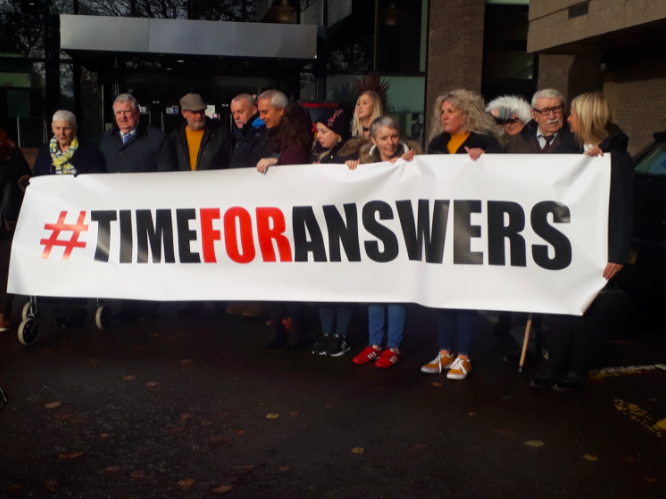ALMOST 70% of Dr Michael Watt's blood patch patients whose cases were part of an official review had no clinical reason to undergo the procedure.
This Belfast Health and Social Care Trust (BHSCT) review examined 66 of the former trust neurologist’s epidural blood patch patients and in 45 cases (68%) found there was “no clinical evidence to support that a blood patch procedure was required”.
It also found that 46 patients had “unsatisfactory” care which “fell below” expected standards.
Epidural blood patches are needle placements in the lower back, carried out to treat specific kinds of headaches.
Concerns over Dr Watt’s performance of blood patches were officially raised by a GP in December 2016.
There was a spike in blood patches being carried out in the BHSCT from 2013-2017 which, according to the BHSCT, can be attributed to “treatment decisions” taken by Dr Watt.
No more than 10 blood patches were carried out per year in the BHSCT from 2008-2013, but over 200 were conducted in the years 2014-2017.
There was a significant increase in their use from 19 in 2014 to 72 the following year and 92 in 2016.
The Detail, therefore, asked the BHSCT why only 66 patients were part of its case note review.
We were told it was because the trust review only included individuals who “did not have a clinical review as part of the recall process”, in which thousands of neurology patients have had their cases reexamined.
The latest recall report, published last week, found 20% of Dr Watt’s patients, whose cases were reviewed, received insecure diagnoses. This is consistent with previously reported neurology recall figures.
A Royal College of Physicians (RCP) review into 22 (one third) of the 66 blood patch patients, whose cases were examined in the BHSCT internal review, has been carried out to quality assure the trust’s work.
The RCP’s report will be finalised next month, but we were told an interim update has shown its findings are “generally consistent” with the BHSCT’s case note review.
In addition, a review of Dr Watt’s deceased former patients' medical records was commissioned by the Department of Health in May 2018.
Earlier this month, we reported that the number of patients who were at one point under the care of Dr Michael Watt and who’d died in the 10 years prior to 2018, is estimated to exceed 3,500.
We also reported that this review, which is to be conducted by the Regulation and Quality Improvement Authority (RQIA), had still not begun.
Despite being asked, the BHSCT declined to say whether or not any of the 3,500 deceased former patients of Dr Watt had received the blood patch treatment.
The Detail was told: “All questions regarding RQIA’s review of deceased patients should be directed to RQIA.”
However, the RQIA also could not tell us whether or not any of Dr Watt's former blood patch patients have died.
In addition, The Detail previously reported on how the BHSCT was criticised for its introduction of a new blood patch protocol, in November 2019.
Comments provided to us by an expert anaesthetist, as well as by former patients of Dr Watt, are at odds with what this protocol enables – the performance of blood patches by neurologists.
This November 2019 protocol was implemented one year before Health Minister Robin Swann announced that Brett Lockhart’s Independent Neurology Inquiry was being upgraded to have full statutory public inquiry status.
Former Dr Watt patient, Lyndsay Eccleston – on whom the neurologist performed a blood patch – called the protocol “dangerous, out-of-step with best practice and not in the interests of patient safety”.
The BHSCT added that it was “deeply sorry” to the blood patch patients who have experienced “undue hurt”.
 By
By
